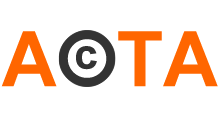 There may have been large scale protests across the web in response to SOPA and PIPA, with websites from Reddit, to Wikipedia, to this one went dark – but where’s the campaign against Anti-Counterfeiting Trade Agreement? ACTA has been negotiated in secret for the last six years with the express intent of excluding the public from the negotiating table as lobbied politicians give away users’ privacy and freedoms in return for the possibility of reducing intellectual property “theft”.
There may have been large scale protests across the web in response to SOPA and PIPA, with websites from Reddit, to Wikipedia, to this one went dark – but where’s the campaign against Anti-Counterfeiting Trade Agreement? ACTA has been negotiated in secret for the last six years with the express intent of excluding the public from the negotiating table as lobbied politicians give away users’ privacy and freedoms in return for the possibility of reducing intellectual property “theft”.
No-one can deny that file sharing and large scale copyright infringement is a major issue for the content industries, but that does not mean that the public should have their freedoms eroded in return for securing corporate profits. It will come as no surprise when one reads the draft agreement that the vast majority of those brought in to give their input to the negotiations were intellectual property trade groups and organisations such as the RIAA and MPAA. The theory is that the politicians are there to represent the public’s views, and yet as with every negotiation to change intellectual property law – it is the people who give up rights and freedoms and the corporations that gain longer lasting, stronger rights that result in increased and secured profits.
To understand quite how far the politicians are selling citizens’ rights down the river, Aaron Shaw, Research Fellow at the Berkman Center for Internet & Society at Harvard University, argues that
ACTA would create unduly harsh legal standards that do not reflect contemporary principles of democratic government, free market exchange, or civil liberties
In an open letter signed by many organizations, including Consumers International, EDRi (27 European civil rights and privacy NGOs), the Free Software Foundation (FSF), the Electronic Frontier Foundation (EFF), and the Free Knowledge Institute (FKI), they state that
The current draft of ACTA would profoundly restrict the fundamental rights and freedoms of European citizens, most notably the freedom of expression and communication privacy
It is, then, a significant threat to every internet user across the globe. The European Parliament managed to reduce a few of the most onerous terms in the original drafts in 2010, but the majority of the threats remain in much the same form as they were before that resolution. And yet ACTA has been signed by 22 EU member states including the UK. This signing was after “never-before-seen manoeuvres” by officials preparing the treaty – causing issues so severe that Kader Arif, the European Parliament’s rapporteur for ACTA, resigned over them to keep his conscience. In a statement Mr Arif said
I condemn the whole process which led to the signature of this agreement: no consultation of the civil society, lack of transparency since the beginning of negotiations, repeated delays of the signature of the text without any explanation given, reject of Parliament’s recommendations as given in several resolutions of our assembly
ACTA supporters may claim that the agreement doesn’t change existing laws – but it does create an entirely new and more onerous framework for dealing with intellectual property issues that involves imprisonment. Unlike SOPA and PIPA, ACTA does not affect the underlying infrastructure of the internet – and so it is not for sites like Wikipedia and Reddit to highlight this battle – this is a battle that citizens need to understand and fight for themselves.
